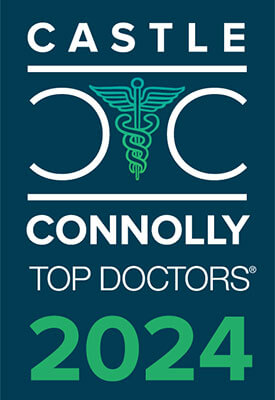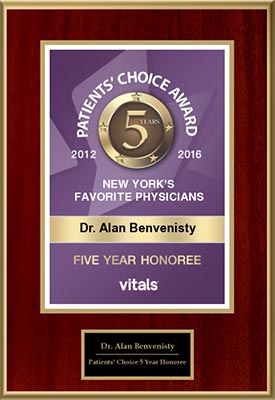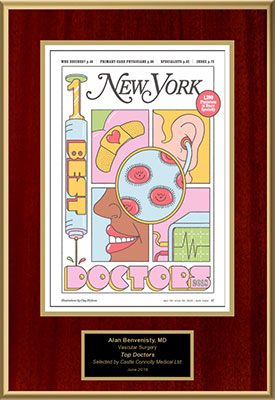Kidney Failure Causes and Symptoms
Playing a critical role in a variety of body functions, the kidneys are responsible for balancing electrolyte levels (sodium and potassium), maintaining blood pressure and stimulating the bone marrow to produce red blood cells. They also monitor body fluids, ridding the body of waste, while specialized censors within the kidneys regulate the exact amount of water to excrete as urine. To better understand how kidneys fail, it’s important to know that kidney failure may result from an acute situation where the kidneys have suffered an injury, or it may occur progressively over time.
Acute kidney (renal) failure occurs quickly, resulting in loss of kidney function (in less than 2 days). However, both kidneys must begin to lose their capacity to function in order to classify as “complete kidney failure.” For instance, if only one kidney is damaged, it can be surgically removed, and it is possible for the remaining kidney to function normally. There are numerous causes of kidney damage including acute tubular necrosis (ATN), autoimmune kidney disease, blood clotting disorders, pregnancy complications, urinary tract blockage or use of drugs such as cocaine or heroin.
Even so, the following may also result in decreased blood supply (from the renal arteries) to the kidneys:
- Low blood volume (hypovolemia) – may be a result of a substantial loss of blood from an accident or injury
- Dehydration
- Medication – diuretics, or water pills, may result in excessive water loss
- Obstruction of the renal arteries, which result in abnormal blood flow to the kidneys
In other cases, the kidneys may suffer direct damage through infection or inflammation. One example of this is sepsis. In turn, medications such as NSAIDs, lithium, iodine-containing drugs and antibiotics such as Garamycin and Tobramycin may prove toxic to kidneys. Significant muscle breakdown (rhabdomyolysis) may overwhelm the kidneys, as inflammation from multiple myelomas (lupus, Wegener’s Granulomatosis, and Goodpasture syndrome) affect their ability to filter properly. Factors affecting the outflow of urine such as a blockage in the bladder, prostate cancer and abdominal tumors may also play a part in causing kidneys to fail.
While early stage kidney failure may be asymptomatic (producing no symptoms), symptoms from acute kidney failure may include the following:
- Bloody stools
- Breath odor (metallic taste)
- Breathlessness (shortness of breath)
- Bruising
- Changes in mood or mental state
- Changes in urination
- Decreased appetite
- Decreased sensation (most notably in hands and feet)
- Fatigue
- Flank pain (between ribs and hips)
- Hand tremors
- Heart murmur
- High blood pressure
- Nausea, vomiting
- Nosebleeds
- Prolonged bleeding
- Seizures
- Swelling (retaining water in legs, ankles and feet)
On the other hand, decreased kidney function over time is not as recognizable, and may present the following symptoms and conditions:
- Lethargy and fatigue
- Breathlessness, shortness of breath
- Edema (generalized swelling)
- Weakness (anemia)
- Appetite loss
- Joint stiffness and pain (from rising levels of amyloid protein in blood)
- Claudication (leg pain when walking)
- Congestive heart failure
- Hyperkalemia (high blood potassium)
- Metabolic acidosis
- High levels of uremia in blood (suggests inflammation within the heart)
- Hypocalcaemia (low calcium blood levels)
When it comes to kidney failure, it’s important to understand that kidney failure does not cause pain. Thus, when individuals experience pain such as joint pain or muscular pain, it is most likely from an underlying disease or condition that contributed to their kidney disease. One example of this is uncontrolled diabetes leading to “diabetic neuropathic pain.”
Because many of the signs and symptoms of kidney failure can be attributed to other health conditions, patients are often diagnosed with it when they are tested or evaluated for something else. Physicians may assess kidneys and their functioning in several ways including blood tests, BUN, creatinine clearance, serum creatinine, serum potassium, urinalysis, abdominal ultrasound and kidney biopsy.
Chronic Renal Failure and End Stage Renal Disease
Typically, when individuals are diagnosed with kidney disease, immediate intervention is necessary to restore kidney function. Even so, kidney disease is progressive and will move through stages. The length of each stage depends on the care and treatment a patient receives, as well as their diet and lifestyle. For many, chronic kidney (renal) disease doesn’t enter the final or 5th stage until 10-20 years after the initial diagnosis. An individual’s glomerular filtration rate (GFR) determines end stage renal disease.
Without question, long standing diabetes and persistent high blood pressure (hypertension) are leading causes of end stage renal disease. For example, when someone has uncontrolled diabetes, the amount of glucose in the blood runs high. High levels of glucose attack the nephrons in the kidneys, which are filtering units. In turn, hypertension results in increased pressure on blood vessels in the kidneys causing damage.
Other risk factors for developing end stage renal disease include:
- Polycystic kidney disease
- Alport syndrome
- Interstitial nephritis
- Pyelonephritis
- Lupus
- Family history
While obvious treatments for chronic kidney (renal) failure and end stage renal disease include dialysis and transplantation, Dr. Alan I. Benvenisty has an ability to navigate the system in regards to treatment for those with chronic kidney and renal failure by providing more suitable options and avoiding dialysis whenever possible. In turn, his commitment to personalized patient care is one reason many seek Dr. Benvenisty’s expertise when it comes to their kidney conditions. To schedule your appointment with Dr. Benvenisty today, contact our office on Amsterdam Avenue.







